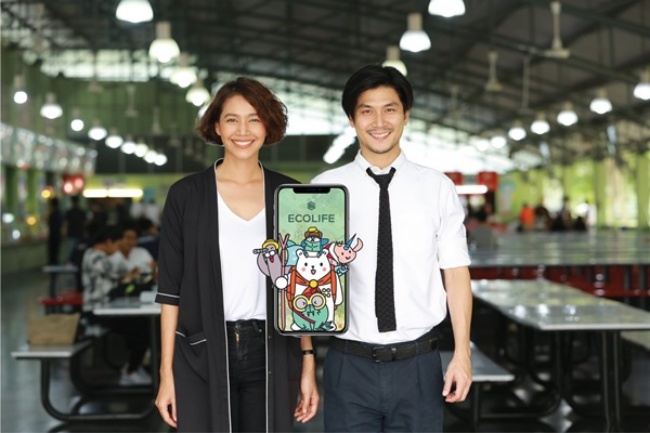Feature Stories
The ThinkCycle Bank promotes the ‘Circular Use to Change the World’ concept
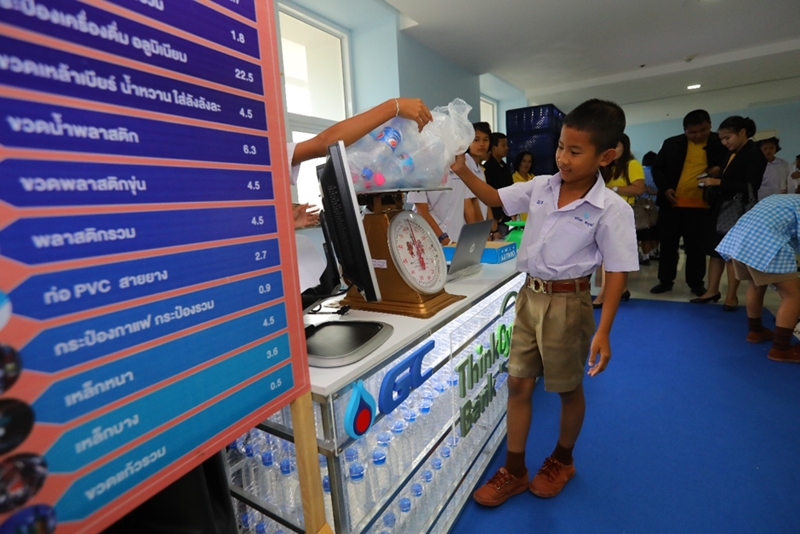
Background
PTT Global Chemical Public Company Limited, or GC, and Mahidol University joined together to initiate the ThinkCycle Bank project, a waste bank that promotes waste management solutions in Thailand under the “Circular Use... To Change the World” concept. The project aims to increase knowledge and a better understanding about waste sorting and management among youth and relevant parties, starting with households and schools, thus improving awareness of the need for appropriate waste management from the source, while encouraging people to get into the habit of bringing their waste to the waste bank through a more systematic approach. This effort can have a positive impact and promote the more efficient use of resources.
GC and Mahidol University recognize the ongoing challenges in having a proper waste management and recycling program, and are therefore applying the 3Rs to revitalize recyclable waste through reuse thereby promoting the efficient use of resources and ensuring their maximum benefits under the concept of GC Circular Living. A network of community enterprises and stores was established to buy local waste, such as paper, cans, clean plastic bags, glass bottles and various types of plastic bottles.
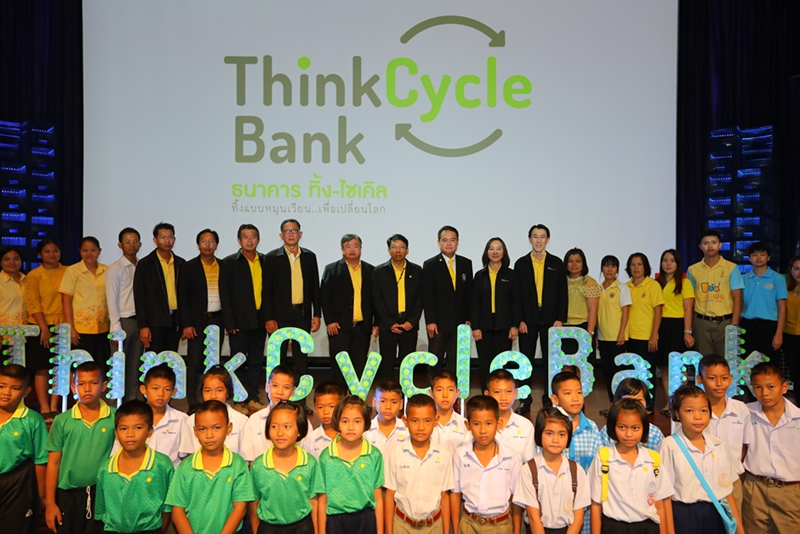
Objectives
- To promote a systemized waste management network that is scalable and can be monitored.
- To raise awareness about the need to sort and reuse before discarding waste.
- To distribute local incomes by selling waste to community enterprises and buyers as another way to add economic value to waste.
- To develop money saving habits among students while building an effective approach to waste management.
Scope of Work
- Increase cooperation among both the public and private sectors and civil society to jointly address the waste problem by better managing used plastic in line with the GC Circular Living concept.
- Promote a waste sorting and management system and develop a database which incorporates the quantity of waste more systematically.
- Conduct a study on the changing behaviors of target groups in terms of effective waste management.
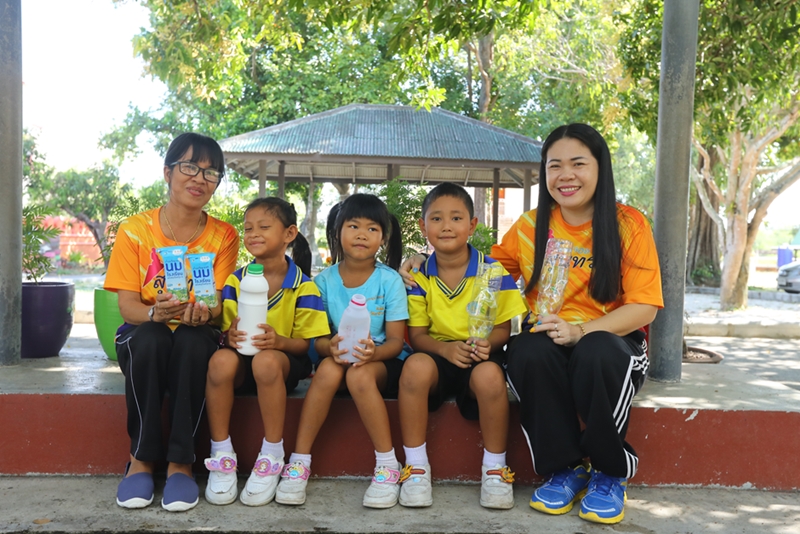
Work Procedures
- Conduct a survey and gain cooperation in the targeted areas.
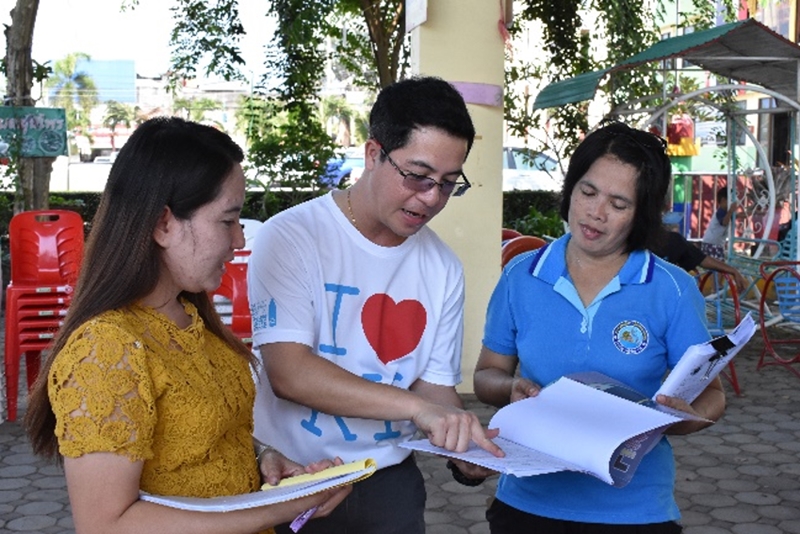
- Conduct a training program for participating teachers and students on how to use the waste bank’s software.

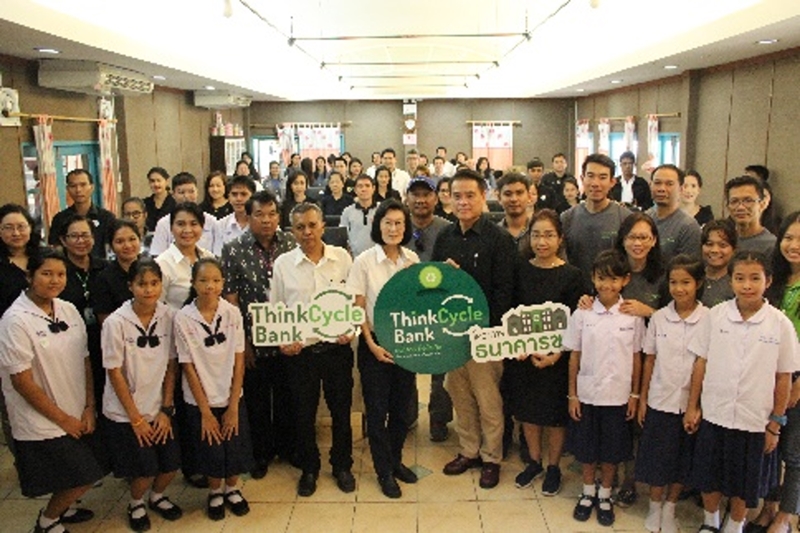
- Organize a successful roadshow to share knowledge about appropriate ways to sort waste for recycling.

- Conduct activities on buying recyclable waste.
Both the school’s students and personnel carried the sorted waste to the waste collection station at the expected time and date set by the school for it to be weighed, calculated and sold to buyers. The recyclable waste was then ready to be priced and purchased with the funds deposited into the ThinkCycle Bank account. The project is widely seen as encouraging improved waste sorting practices, and promoting money saving habits through cash deposits at the waste bank, all of which in turn, have a positive impact on the environment.

- Follow-up work
Currently, there are 21 participating schools in Rayong province that have joined the ThinkCycle Bank project’s network. In 2019 alone, the project managed to collect over 12,581 kilograms of recyclable waste, earning 27,723.25 baht in income.
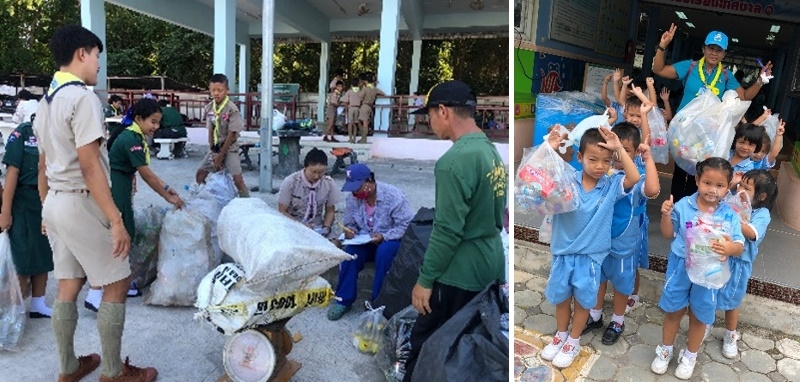
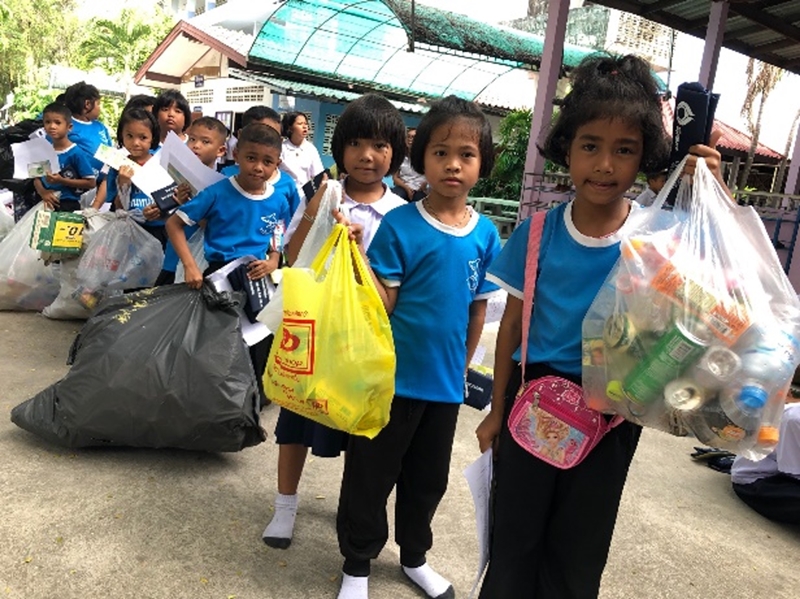

*as of October 2019.
Feature Stories
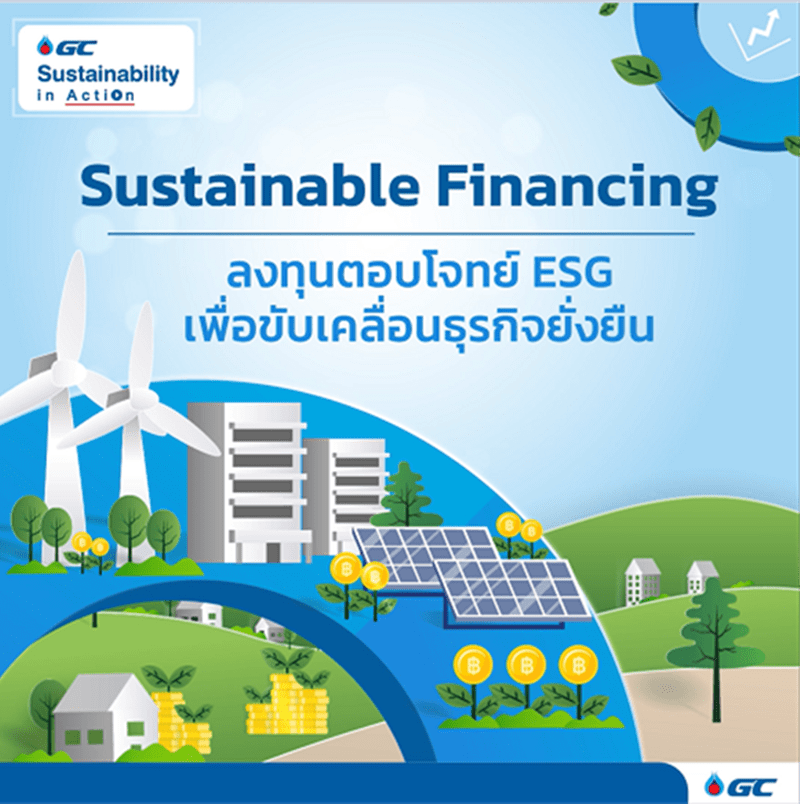
Sustainable Financing : ลงทุนตอบโจทย์ ESG เพื่อขับเคลื่อนธุรกิจยั่งยืน
Read More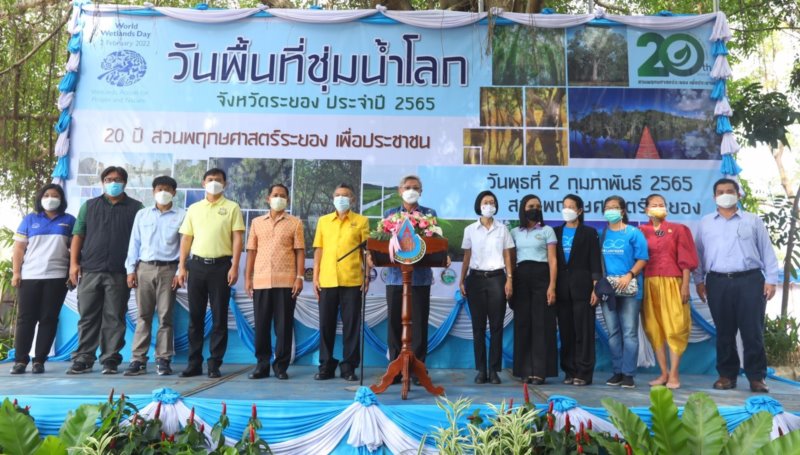
GC จับมือสวนพฤกษศาสตร์ระยอง มุ่งพัฒนาแหล่งท่องเที่ยวคาร์บอนต่ำ (low carbon destination) เส้นทางแห่งความสุขแห่งใหม่ของจังหวัดระยอง
Read More